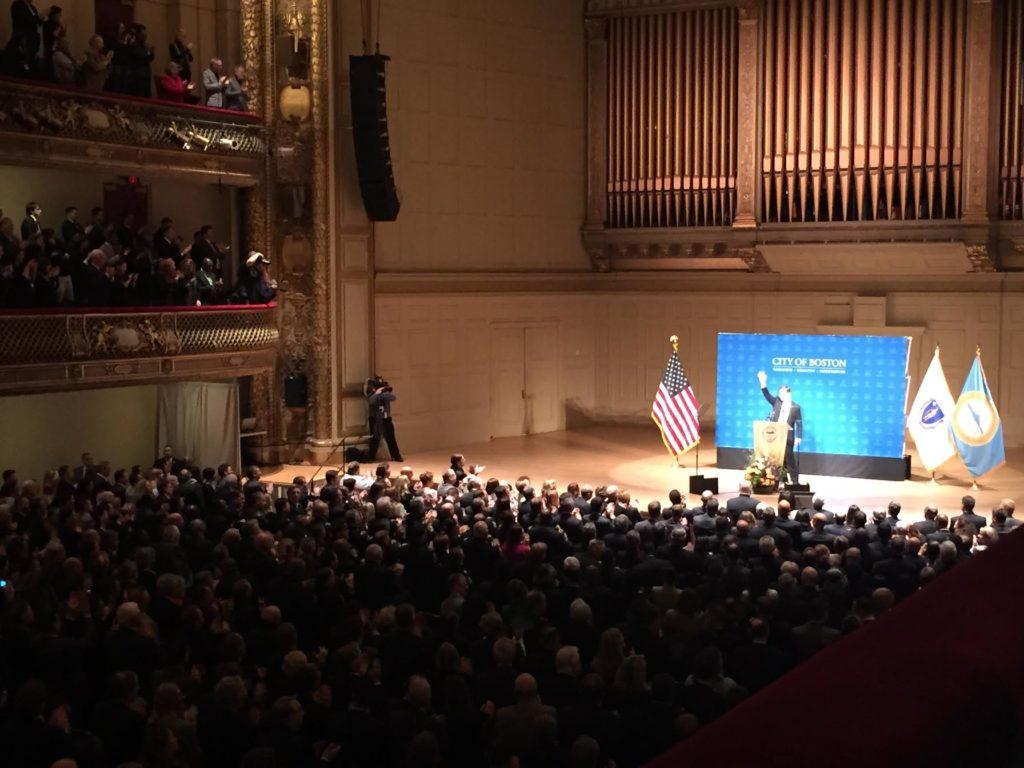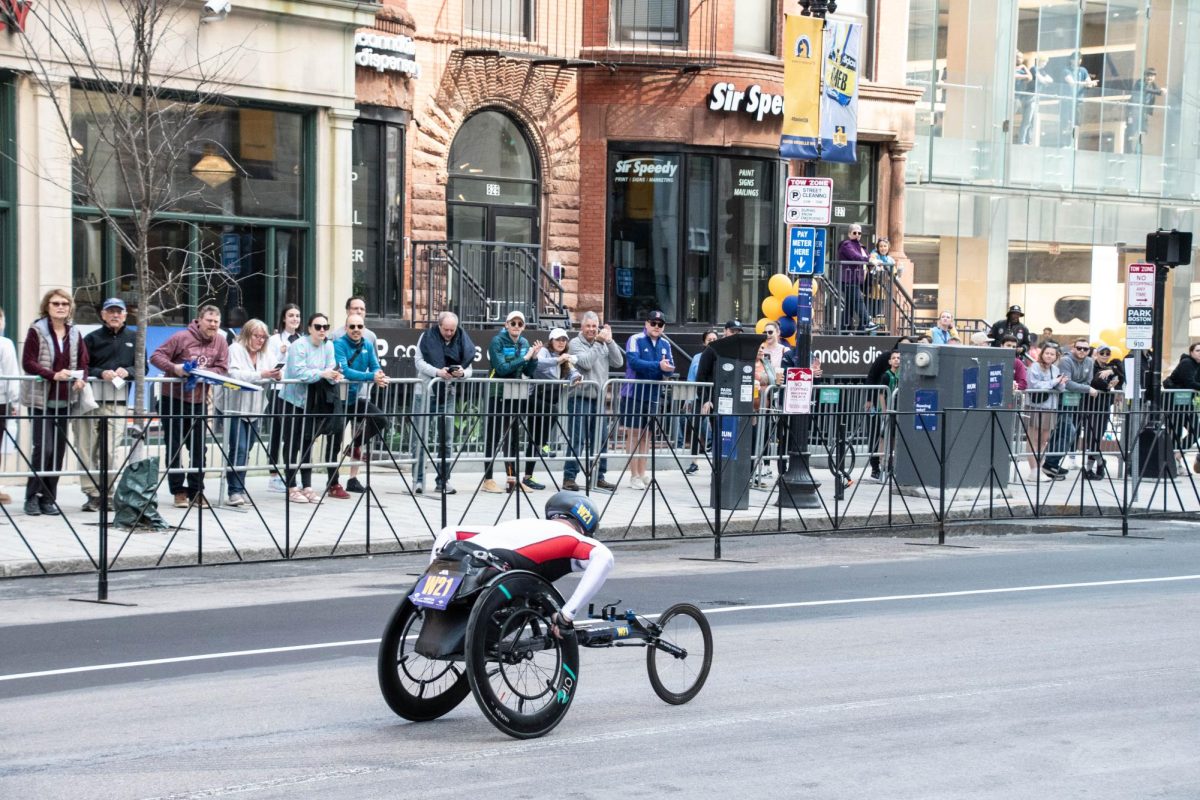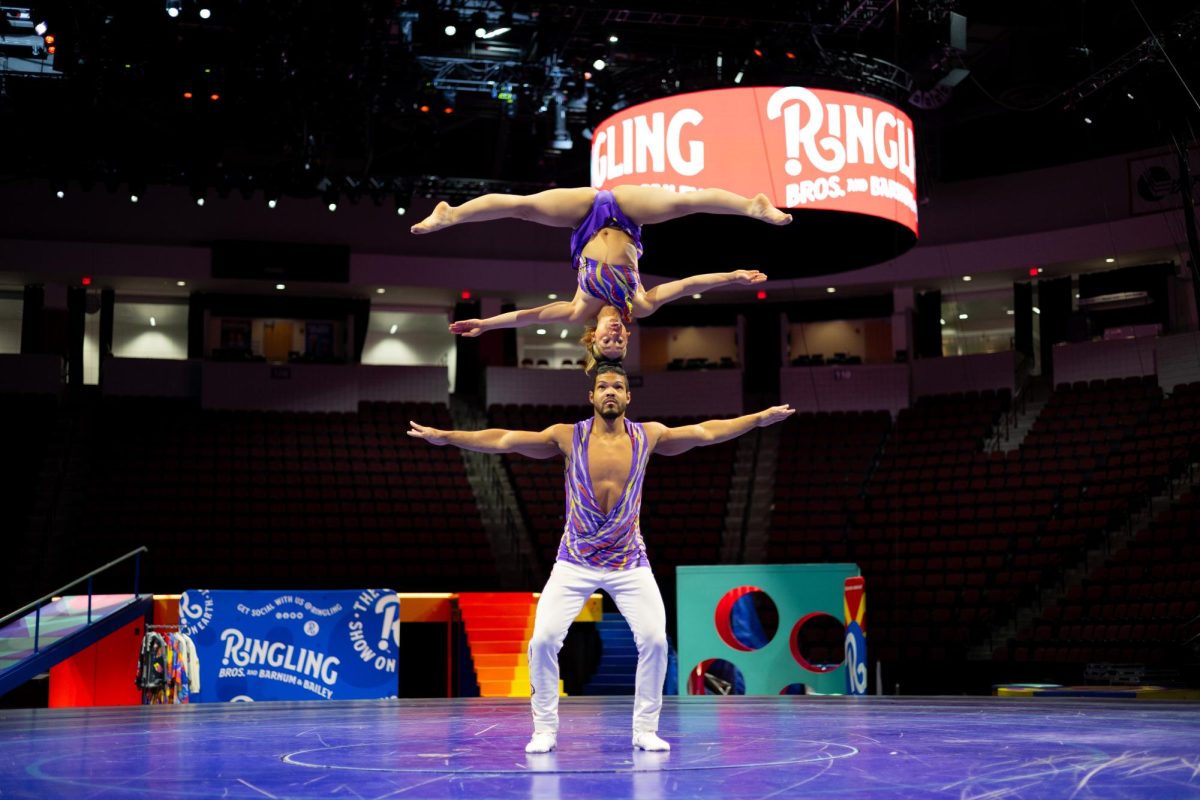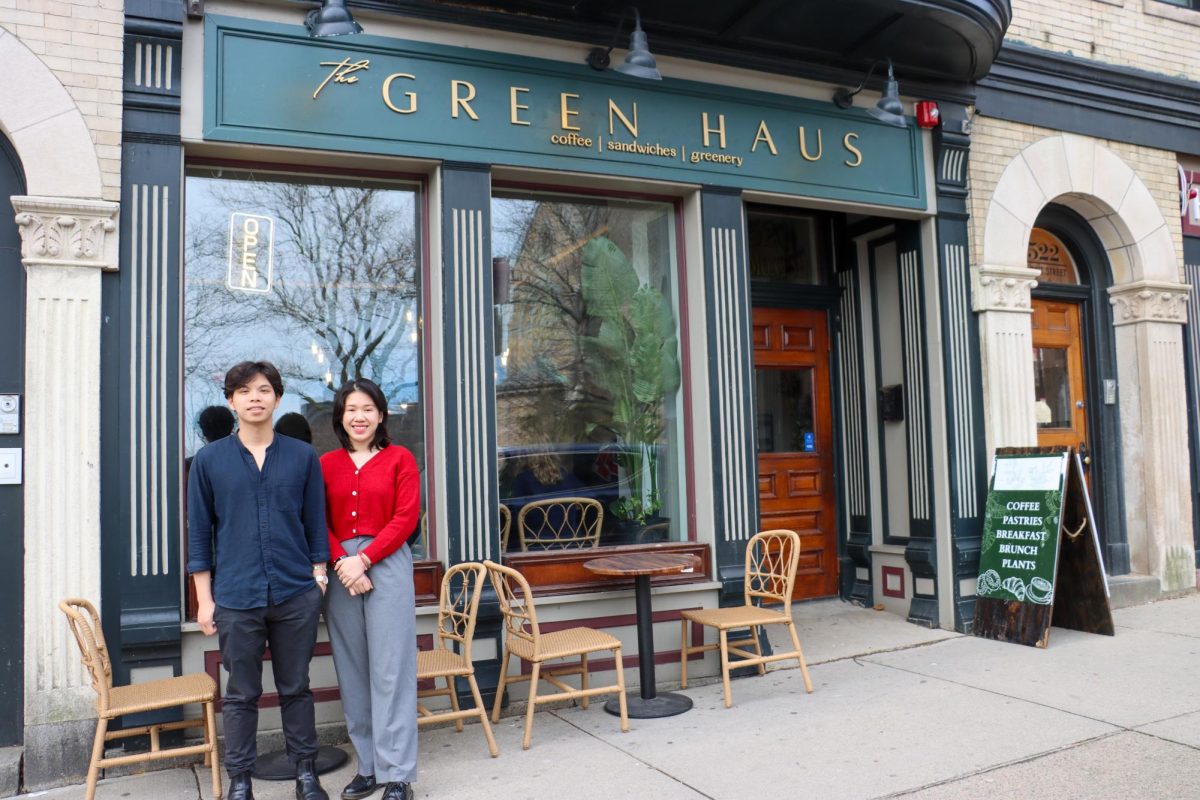By Rowan Walrath, city editor
Mayor Martin J. Walsh discussed the City of Boston’s successes and needs for improvement in regard to education, housing, diversity and more in Boston’s first State of the City Address. Around 2,500 people convened in Symphony Hall Tuesday evening for the event, just over a year after Walsh’s inauguration.
After two straight lines of students from Thomas J. Kenny Elementary School opened the ceremony with a marching band fanfare, Andris Nelsons, Boston Symphony Orchestra (BSO) conductor as of last fall, welcomed the attendees to Symphony Hall and expressed his gratitude to the City of Boston.
“The people of Boston have made me feel so welcome since I arrived here in September,” Nelsons said. He also voiced a desire to make the symphony more accessible, allowing more children to participate in Boston’s music scene.
Following an invocation, a performance of the national anthem by Elijah Rock, a recitation of her poem “Praisesong for Boston” by poet laureate Danielle Legros Georges and a one-song concert by the Hawthorne String Quartet, Walsh finally took the stage.
He began by honoring the previous year’s fallen heroes: firefighters Lt. Edward Walsh and Michael Kennedy, who died in the fire on Beacon Street in March; Dennis Simmonds, a police officer who helped in the aftermath of the Marathon Bombing and died at the Police Academy; and Dawnn Jaffier, a youth worker who died in an act of gun violence.
Walsh also paid his respects to his late predecessor, Thomas M. Menino.
The mayor was interrupted by frequent applause as he detailed the city’s accomplishments of the last year, including a thriving economy and a city council and police force that are representative of the people of Boston.
“We created the most diverse command staff in the Boston Police Department’s history,” Walsh said. “With eight chiefs of color, my cabinet is the most diverse ever in City Hall.”
Walsh also thanked the city’s laborers for their hard work and provided statistics meant to showcase a Boston that has become cleaner and safer since he took office.
“Our police officers took 1,061 guns off the streets – the most ever,” Walsh said. “Both violent crime and property crime have gone down. We paved more than 60 miles of roads and filled over 19,000 potholes – 50 percent more than in 2013.”
He also came prepared to address infrastructural issues. In 2014, $4 billion of construction began, including 4,000 new units of housing, and the city approved nearly $4 billion more in future development.
Boston’s employment rate has improved as well.
“25,000 more Bostonians went to work last year,” Walsh said. “It’s the highest job growth since 2007, and it’s lowered our unemployment rate to 5.2 percent.”
Although the city’s Olympic bid has created a great deal of discussion regarding how Boston might prepare itself to host the international Games, Walsh addressed this only briefly. He sees the bid as an opportunity for Boston to prove itself globally as well as to its own citizens as it makes improvements to education, housing and transportation.
“I commit to you that we will hold transparent conversations on every impact in every neighborhood,” Walsh said. “When we talk about 2024, we’ll be talking about what Boston needs today. And what Boston needs in 2030, 2040 and 2050.”
What Boston needs first, Walsh said, is an improved public education system. At the moment, less than 70 percent of the city’s high school students graduate in five years.
“Next month, I will get the names of the final candidates for the next superintendent of schools for the Boston Public School system,” Walsh said. He said that he plans to communicate the need for improvement with the new superintendent immediately and forcefully.
Additionally, Walsh announced plans in partnership with the Boston Teachers Union to add 40 minutes of learning time for students in kindergarten through eighth grade across the city. These plans also include an expansion of full-day pre-kindergarten with the intention of providing essential education to all of Boston’s four-year-olds.
The city’s high schools will be likewise restructured to steer their students toward college and careers.
“We’ve tripled the size of the Success Boston college completion program,” Walsh said. “And tonight, I’m excited to announce a new partnership with the global software company SAP to create a high-tech career pipeline from Charlestown High School to Bunker Hill Community College.”
An early learning specialist and special education advocate have been appointed to the Boston School Committee. Walsh’s administration is also creating a 10-year facilities plan and a Boston School-Building Authority to establish a permanent school-building program. Plans are in the works for opening science, technology, engineering and mathematics (STEM) schools at Boston Arts Academy and Quincy Upper School. For students who face an opportunity gap, Walsh said, the new Office of Financial Empowerment will launch a free child savings account program.
The mayor also announced “StartHub,” a program designed to bolster Boston’s innovation economy. A full-time “start-up czar” will oversee this operation. What exactly this czar’s duties will be remains to be seen.
The Walsh administration unveiled an innovation of its own, too: the new ParkBoston app, which will allow users to pay for meters via their mobile devices.
City Hall Plaza, Walsh said, will be improved to show “real pride in our front yard.” He was vague as to how these improvements will be implemented, but he expressed pride in the city’s already-existing green spaces. Boston is No. 1 nationwide in access to parks, and now, “Main Street Makeovers” are designed to help upgrade public spaces and small businesses as well.
Walsh acknowledged Boston’s housing crisis, outlining a plan for the city’s response: $20 million for affordable housing, transit corridors in South Boston and Jamaica Plain, universities to build more dorms after a census of off-campus housing and 250 city-owned parcels creating homes for low- and middle-income families, as outlined by the Housing Plan announced in October.
He recognized the additional housing difficulties faced by senior citizens and those with disabilities.
“Starting today, the Boston Water and Sewer Commission will boost the water discount for all seniors and disabled homeowners to 30 percent,” Walsh said. “And I’ve asked all the utilities to follow suit as well.” The audience responded with a great deal of applause.
Not everyone is happy with how Walsh has handled Boston’s housing crises, however. Outside Symphony Hall, around 40 protesters gathered, expressing their displeasure with the closure of the Long Island Bridge in October. Long Island was the site of Boston’s largest shelter, providing relief for over 400 people who would otherwise sleep on the streets.
When Walsh walked onstage, the protesters in the audience revealed a banner reading: “People are dying. Long Island. Where’s Marty?”
“That hit me hard,” Walsh said in response to the bridge’s closure. “I knew the impact it would have – on people I have worked hard to help.”
After four months, Walsh announced an action plan in his address.
“We are opening a safe shelter, this week; we are connecting services and housing that are bridges to new life; and we are opening up the nation’s first Office of Recovery Services,” Walsh said.
In his address to the city, Walsh incorporated national issues: the deaths of Michael Brown in Ferguson, Mo. and Eric Garner in New York City, the subsequent failure of two separate grand juries to indict the officers who shot them and the countrywide response, of which Boston was a large part. The city saw multiple peaceful demonstrations and meetings near the close of 2014.
“I commend the officers of the Boston Police Department – and those who protested,” Walsh said. “And I thank leaders like Reverend Jeffrey Brown and Father Jack Ahearn, Commissioner William Evans and Professor Charles Ogletree for their insight and wisdom in helping guide my response.”
Walsh spoke on Boston’s issues at home as well.
“I know from my own life you can’t move forward unless you reach out and deal honestly with the past,” Walsh said. “The truth is that when it comes to race and class, Boston has a lot of unfinished business. We must not be afraid to talk about it.”
The mayor told his audience that the City of Boston would be partnering with the Rockefeller Foundation, which advocates for the advancement of inclusive economies and the potential for recovery from various types of stress to communities across the nation.
Walsh closed with an eye toward Boston’s collective character.
“As mayor, I’ve seen reflections of this character in every corner of our city,” Walsh said. “It’s rooted in a certainty about who we are and what we are capable of and how we stick together. It’s a resilience that carries us through the hardest of times and allows us to imagine and work for the brightest future together. It’s how we’ll meet our challenges. It’s how we’ll move forward together. It’s how nearly a 400-year-old city became a thriving, healthy and innovative leader of the 21st century, without forgetting for one second who we are and where we came from.”
Photo by Rowan Walrath, news staff














